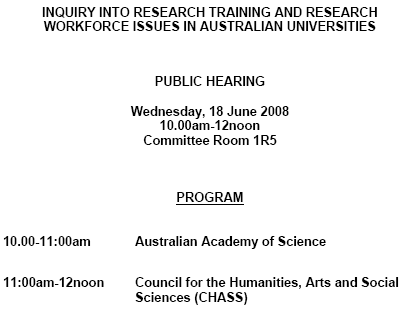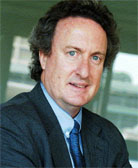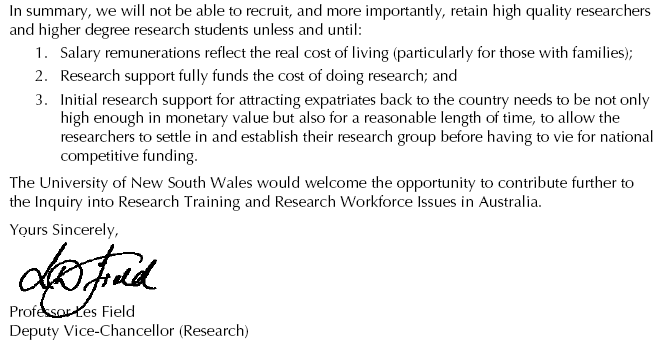|
|
|
|
|
|
|
News & Views item - June 2008 |
![]() The
Inquiry Into Research Training and Research Workforce Issues. (June 14,
2008)
The
Inquiry Into Research Training and Research Workforce Issues. (June 14,
2008)
Toward the end of April the Minister for Innovation, Industry, Science and Research, Kim Carr, asked the House of Representatives Standing Committee on Industry, Science and Innovation to undertake an inquiry into research training and research workforce issues in Australian universities.
To date it has noted fifty submissions on its website though TFW is told it has more to be listed, and it has scheduled two for public hearings:

One of the fifty submissions (13 pages) is from The University of New South Wales, written by professor of chemistry Les Field in his role as Deputy Vice-Chancellor (Research) for the university.
 |
| UNSW Prof Les Field |
He writes in his opening statement: "This submission seeks to demonstrate that Australia lags behind our international competitors in recognising the contribution and importance of university research training and research careers on setting the foundations to drive the national innovation agenda,"
While UNSW wasn't invited to contribute to the public hearing, The Australian allotted Professor Field an avenue to the public in its Higher Education Supplement.
Some excerpts from his article:
Over the past five years, we have increased our research output only by heavily cross-subsidising research activity from other sources, including revenue from undergraduate fee-paying international students.
The number of Australian commencing PhD students across the sector decreased by 30per cent between 1995 and 2006.
[I]f this trend continues, Australia will face a severe shortage of highly qualified professionals, researchers and academics in core sectors, including science and engineering, and in fields critical to tackling national issues such as health and the environment.
We need a complete shake-up of how research is funded: research support, including grants, should fully cover the real cost of doing research and training the next generation of researchers.
There should be an agreed amount to support each research student, and the number of research students supported should reflect, among other factors, the research performance of the institution and the critical mass of research support that goes with a strong university research environment.
[Higher degree research] scholarships must be higher in value if we are to compete on the international stage for the best candidates, [and a] significant increase in the number of research fellowships is also critical, to create a career path for PhD graduates.
Professor Field concluded UNSW's submission to the Committee:
